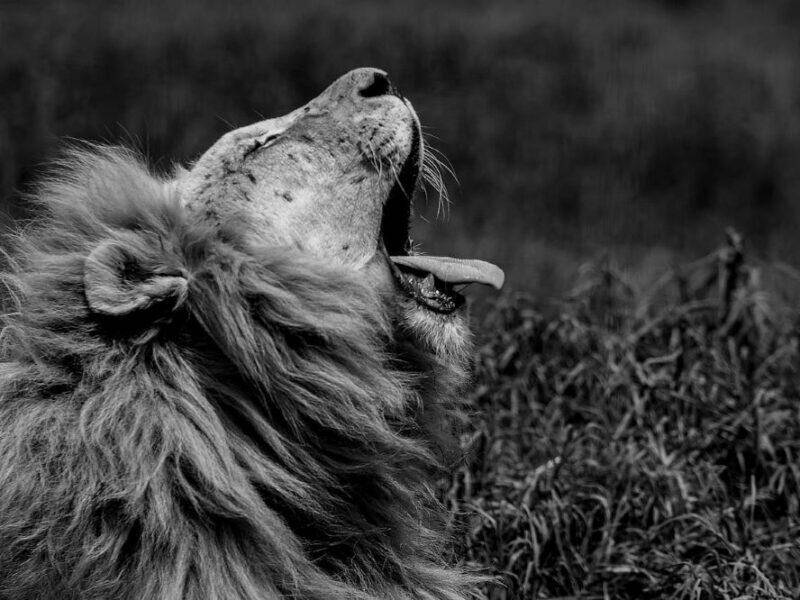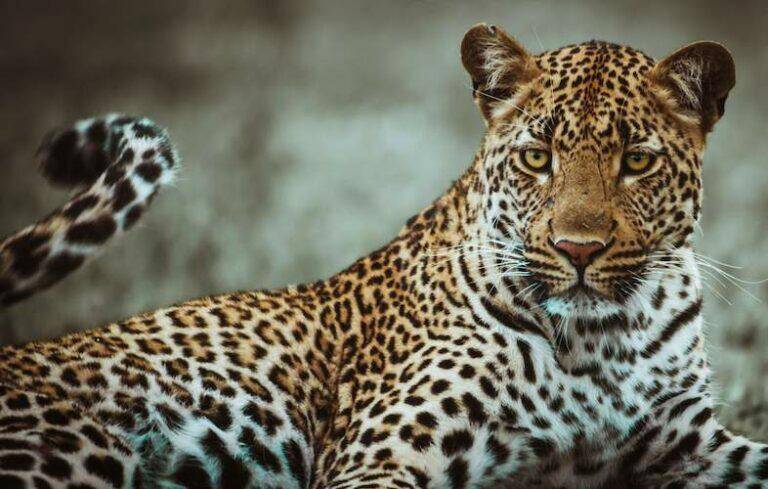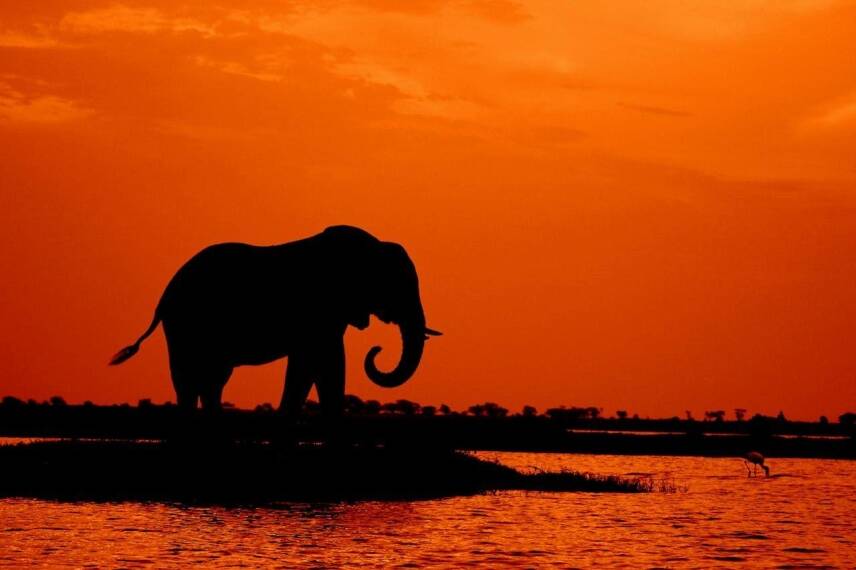South Africa stands as a prime destination for those intrigued by the allure of big game hunting. With its diverse landscapes and rich wildlife, it offers a unique opportunity to engage with nature at its most raw and untamed. From the vast savannas to the dense bushveld, hunters can pursue iconic species like the Big 5—Elephant, Lion, Leopard, Rhino, and Buffalo—each presenting its own challenges and rewards.
Our big game hunts in South Africa are more than just a pursuit; they’re a journey into the heart of the continent’s wild beauty. Whether you’re a seasoned hunter or exploring this adventure for the first time, the experience promises a deep connection with the land and its creatures. As we delve into what makes South Africa a top choice for big game hunting, we’ll explore the preparation and expertise required to make the most of this thrilling endeavor.
[DYNAMIC-BLOGTABLEOFCONTENT]
Key Takeaways
- Prime Destination for Hunters: South Africa offers a unique and thrilling big game hunting experience with its diverse landscapes and rich wildlife, including the iconic Big Five—Elephant, Lion, Leopard, Rhino, and Buffalo.
- Ethical Hunting Practices: Emphasis on ethical and sustainable hunting practices ensures balanced conservation efforts, focusing on humane kills and respect for natural habitats.
- Economic and Community Benefits: Game hunting significantly boosts local economies by funding preservation initiatives and supporting community development projects, benefiting both wildlife and local populations.
- Historical Significance: The evolution of big game hunting from a survival necessity to a regulated sport illustrates South Africa’s commitment to balancing wildlife preservation with hunting tourism.
- Legal and Regulatory Frameworks: Obtaining proper permits and adhering to strict regulations ensure that hunting activities contribute positively to ecological health and species sustainability.
- Controversies and Criticisms: Despite its benefits, game hunting in South Africa faces criticisms over animal welfare and environmental impact, prompting ongoing debate about its role in conservation.
Understanding Big Game Hunting
In South Africa, big game hunting offers an unmatched experience that combines adventure with the continent’s natural splendor. Big game hunts target the renowned Big 5: Elephant, Lion, Leopard, Rhino, and Buffalo. These magnificent animals require precise skill and deep respect, ensuring they’re hunted ethically and sustainably.
The Big 5 Challenge
Pursuing the Big 5 presents a remarkable challenge. Each animal poses distinct hurdles. Elephants demand careful tracking across vast territories. Lions require strategic planning given their elusive nature. Leopards blend seamlessly into their surroundings, making patient waiting essential. Rhinos test one’s stealth to avoid detection while approaching. Finally, buffaloes showcase resilience, often necessitating utmost caution to ensure safety.
Ethical Considerations in Hunting
Ethical hunting forms the backbone of our African hunting safaris. We adhere to fair chase principles, prioritizing clean, humane kills to contribute positively to conservation efforts. This approach ensures that our hunting trips in Africa support wildlife sustainability and habitat protection—a crucial commitment to preserving the ecosystem for future generations.
Preparation for Success
Preparation involves multiple steps. First, selecting appropriate hunting gear based on the specific game and terrain is crucial. Physical fitness plays a key role, ensuring hunters remain agile and ready. Securing necessary permits and understanding local customs and hunting regulations protect both hunters and wildlife. Familiarity with these elements guarantees a smooth, successful safari.
Combining Diverse Hunts
Combining diverse hunts maximizes the African hunting safari experience. Hunters often mix Big 5 hunts with plains game hunting, broadening the adventure and exposure to Africa’s wildlife diversity. This approach provides an enriched, varied experience, capturing the full essence of an African hunt.

History of Big Game Hunting in South Africa
Big game hunting in South Africa traces its origins back to the early 19th century, when explorers and settlers ventured into the untamed wilderness. These pioneers brought firearms and ambition, recognizing the country’s rich wildlife potential. As time progressed, hunting evolved from a survival activity to a sport, attracting international attention.
In the late 1800s, famous hunters like Frederick Courteney Selous traveled to Africa, chronicling their adventures. Such stories captured the imagination of many, spurring interest in Africa big game hunts. However, this surge led to overhunting, threatening wildlife populations. It wasn’t long before regulations became essential.
The 20th century marked a shift towards conservation-minded hunting. South Africa established game reserves to protect species while allowing controlled hunting. This balance between preservation and pursuit laid the groundwork for modern African hunting safaris. Regulations enforced sustainable practices, ensuring species could thrive despite hunting pressures.
Game Hunting Safaris today reflects this rich history, offering ethical hunting experiences. Each hunter becomes part of a legacy that values both the thrill of the hunt and the responsibility for wildlife conservation. Since diverse landscapes and species enrich hunting trips in Africa, they continue to captivate those who seek adventure intertwined with environmental stewardship.
Major Species Targeted
In game hunting safaris across South Africa, the thrill of pursuing the continent’s most famous creatures draws enthusiasts from around the globe. Our focus includes the iconic Big Five and a diverse range of other trophy animals.
The Big Five
The term “Big Five” is iconic in the realm of African hunting safaris, referring to five of Africa’s most challenging and dangerous animals to hunt on foot. We carefully navigate through our African hunts, skillfully tracking and engaging with each:
- Elephant: The grandeur of hunting an elephant lies in its sheer size and intelligence. Successful hunts require not just skill but a deep respect for the animal. Participants carefully assess each situation to determine the best approach for a humane and ethical hunt.
- Lion: Known as the king of the jungle, lions demand a strategic plan due to their stealth and power. We guide hunters through terrains where lions naturally blend into their surroundings, ensuring the safety and success of the hunt.
- Leopard: Stealth and patience are critical when pursuing leopards. These elusive predators test a hunter’s resolve, often requiring long waits and precise timing for a successful encounter.
- Rhinoceros: Rhinos present a unique challenge, testing a hunter’s stealth and patience. Ethical hunting practices maintain the balance between pursuit and preservation, respecting the creature’s majesty.
- Cape Buffalo: Often referred to as the “Black Death,” cape buffaloes are renowned for their resilience and unpredictable nature. Skill and caution are imperative to ensure a challenge that’s both safe and rewarding.
Other Trophy Animals
Beyond the Big Five, our African hunting safari includes opportunities for hunting other prized species that enrich the experience:
- Plains Game: South Africa offers a diverse range of plains game, such as kudu, impala, and springbok. These hunts complement Big Five experiences and allow hunters to appreciate the full spectrum of Africa’s wildlife.
- Nyala and Bushbuck: These elegant animals present unique challenges within the dense bushveld and forests, providing variety and depth to the safari.
- Gemsbok and Wildebeest: Known for their speed and stamina, these animals enrich our hunting trips in Africa, offering thrilling pursuits that test both skill and equipment.
By including a wide selection of species, our game hunting safaris ensure a comprehensive experience that connects participants with the vibrant and diverse ecosystems of Africa. This holistic approach not only satisfies the thrill of the hunt but also fosters a lasting appreciation for wildlife conservation.

Legal and Ethical Considerations
South Africa’s thrilling game hunting safaris draw enthusiasts from around the globe. Still, legality and ethics play crucial roles in ensuring these experiences are sustainable and responsible.
Conservation Efforts
Conservation underpins big game hunts in Africa. Hunting funds significant preservation initiatives by providing financial support for wildlife reserves and anti-poaching measures. For instance, a portion of fees from hunting permits directly supports habitat maintenance and community development. Such approaches aim to balance the diverse needs of wildlife and surrounding human populations.
Moreover, ethical hunting practices promote “fair chase” principles. Hunters pursue animals in natural settings without unfair advantages, respecting both the animals and the sport. These guidelines align with international conservation standards and help maintain ecological balance.
Regulation and Permits
Strict regulations govern African hunts. Hunters must obtain proper permits, which specify quotas and ensure that activities don’t threaten species conservation. These permits aren’t just formalities; they’re tools that safeguard wildlife populations and maintain ecological health.
Regulatory bodies in South Africa, such as the Department of Environment, Forestry, and Fisheries, oversee these permits. They determine hunting seasons and protected species, ensuring sustainable practices. Leveraging knowledgeable African hunting safari brokers streamlines the planning process by helping navigate these complex regulations, ultimately enhancing the overall experience.
For detailed guidance on legal and ethical hunting practices, check resources like Game Hunting Safaris.
Economic Impact of Big Game Hunting
Big game hunting in South Africa significantly impacts both local communities and the tourism industry. As one of the prominent activities in game hunting safaris, it brings considerable economic benefits.
Local Communities
Big game hunting generates substantial revenue for local communities. Many hunting trips in Africa funnel funds directly into rural areas. Revenue from these hunts supports community projects like schools, healthcare facilities, and infrastructure development. For example, concession fees and hunting licenses are often reinvested in local projects, creating jobs and boosting economic stability. Additionally, it provides employment opportunities for local guides, trackers, and hospitality staff, making a tangible difference in people’s lives.
Tourism Industry
Game hunting safaris contribute significantly to the tourism sector. African hunting safaris attract international tourists, providing a boost to hospitality services such as lodges, restaurants, and transportation providers. This influx of tourists also supports allied businesses, including African hunting safari brokers who organize tailored hunting experiences. The draw of Africa big game hunts broadens the market appeal of South Africa, enhancing its reputation as a premier hunting destination. In summary, the intertwining of game hunting with tourism creates a symbiotic relationship, enriching both industries and solidifying their contributions to the national economy.
Controversies and Criticisms
Game hunting safaris in South Africa do face a fair share of controversies and criticisms, stemming mainly from concerns about animal welfare and environmental impact.
Animal Welfare Concerns
Big game hunts often raise red flags for animal welfare advocates focused on the ethical treatment of animals. Critics argue that despite fair chase principles, hunting poses stress and harm to wildlife. Instances of improper hunts can lead to suffering if kills are not instant. Skeptics often challenge the claims that hunting aids conservation. They question whether revenues generated truly support tangible measures like habitat preservation or anti-poaching initiatives.
Environmental Impact
Environmental concerns revolve around the potential disruption to ecosystems from hunting. Critics worry about the sustainability of game hunting safaris, scrutinizing how hunting quotas are maintained and their real impact on wildlife populations. The balance between preserving biodiversity and hosting African hunting safaris becomes a focal point.
Conclusion
South Africa’s big game hunting offers an unparalleled adventure that intertwines thrill with a deep respect for nature. By embracing ethical practices and supporting conservation efforts, we contribute to the preservation of Africa’s majestic wildlife. This unique experience not only challenges us as hunters but also enriches our understanding of the continent’s vibrant ecosystems. As we continue to explore and appreciate the diverse species that roam these lands, let’s ensure our pursuits are both responsible and sustainable, safeguarding this incredible heritage for future generations.
Frequently Asked Questions
What is the Big 5 in South African game hunting?
The Big 5 refers to five iconic wildlife species: Elephants, Lions, Leopards, Rhinos, and Buffaloes. They are considered challenging and prestigious to hunt due to their ability to evade hunters and the diverse skills required to track them.
Why is ethical hunting important in South Africa?
Ethical hunting ensures fair chase principles and humane kills, vital for conservation and wildlife sustainability. It respects animal welfare and supports maintaining balanced ecosystems by funding conservation and anti-poaching measures.
How does hunting contribute to conservation in South Africa?
Hunting generates essential funding for conservation through permit fees. These fees support wildlife reserves, anti-poaching efforts, and community development projects, ensuring sustainable wildlife management and economic benefits for local communities.
What role does hunting play in the South African economy?
Hunting significantly impacts the economy by generating revenue, creating jobs, and supporting local businesses. It contributes to tourism by attracting international visitors and funding community initiatives like schools and healthcare facilities.
What types of other game can be hunted alongside the Big 5?
In addition to the Big 5, hunters can pursue plains game such as kudu, impala, and springbok, and other species like nyala, bushbuck, gemsbok, and wildebeest, enhancing the overall safari experience.
What are the primary criticisms of game hunting safaris?
Critics highlight concerns about animal welfare, potential ecosystem disruptions, and the true efficacy of hunting quotas. There’s debate on whether generated revenues effectively support conservation and community involvement in managing conservation efforts.
How has game hunting evolved in South Africa?
Game hunting in South Africa evolved from a survival activity to a regulated sport, with conservation-focused approaches emerging in the 20th century. Today, ethical hunting balances the sporting pursuit with environmental stewardship.
What preparations are needed for a successful big game hunt?
Preparation for big game hunting includes selecting suitable gear, staying physically fit, understanding local regulations, and ensuring ethical hunting practices. Being well-prepared enables a safe, responsible, and rewarding hunting experience.
